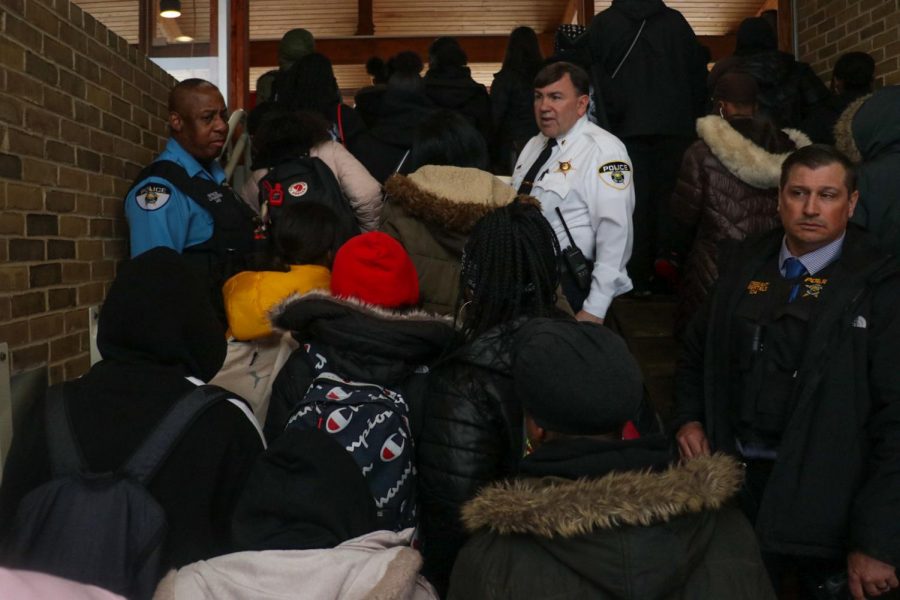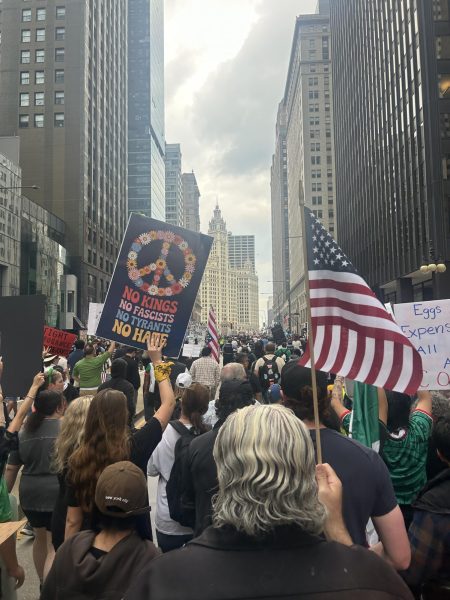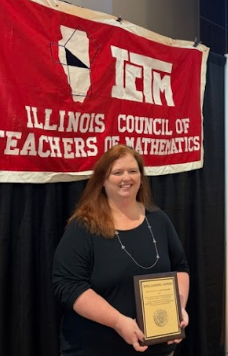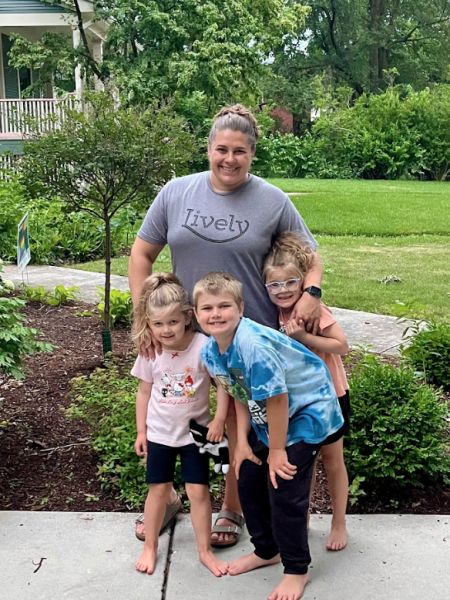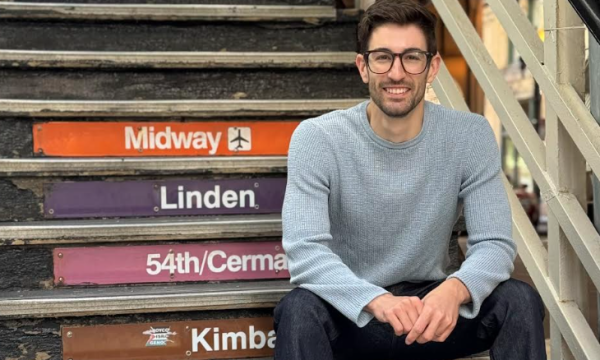Students walk out to protest police brutality
About 50 OPRF students walked out of school at 10 am Wednesday in memory of Trayvon Martin and other victims of police brutality, and to protest the presence of a school resource officer (SRO).
While OPRF has had an SRO since 1999, hired shortly after the Columbine High School massacre, recent discussions about mistreatment of people of color by police officers prompted students to take action.
“The march signifies Trayvon Martin’s death and people who were wrongfully killed,” said student organizer and OPRF junior Chloe Leach, a leader of the student-led group ROYAL (Revolutionary Oak Park Youth Action League). “It shows the inequalities black people face on the daily. I think it’s important that we talk about police brutality during Black History Month because it addresses the historical abuse that black people have faced.”
“We believe in the dismantlement of all oppression against people of color and having a resource officer brings fear and anxiety to our black and brown students,” said Leach.
From school, students marched to Julian, picking up middle school students, and then to the village hall, in an effort to convince Oak Park Mayor Anan Abu-Taleb to sign off on their demands.
Student protesters are calling for complete defunding of the police force nationwide, as well as removal of police officers from District 97 and District 200 schools. Organizers said they want those funds to instead be spent on “Black and LatinX futures.” Other demands include adoption of a strong racial equity policy adopted by the Village of Oak Park and an official declaration Feb. 26 as a day of recognition to memorialize people of color who have been victims of police violence.
The student organizers want “to completely defund the police and use that money for youth centers, mental health programs, and so much more,” says student organizer Twon Ford. “The end goal will potentially be [defunding them] across the nation.”
“We want money for a youth center to give teens a place to go so they are not idle with the possibility of police interactions,” says Ford. “We want money for a bike program to reduce arrest for theft. We want money for mental health problems because many people that engage in crime have problems such as PTSD.”
While it can be argued having a school resource officer can be helpful for many reasons, especially after a recent increase in the number of school shootings nationwide, some student protesters don’t see need for them at all. “Parkland and other school shootings could’ve been prevented if the police officer stepped in, and they didn’t step in at all so many students lost their lives because of that,” says freshman Kishae White.
On Feb. 18, a discussion to amend OPRF’s current school resource officer agreement with the Village of Oak Park was on agenda for both the school and village board, but was unanimously voted to table the item. However, participants in the walkout still remain confident that their demands will be met. “I believe (our demands) will be met because we’re going to sit here until they are met,” says White. “We have many board trustees in here supporting what we’re doing.”
However, Village Manager Cara Pavlicek says elected officials such as Mayor Abu-Taleb work only part-time at the Village, making the chances of a meeting between the mayor and protest organizers unlikely until Monday, when elected officials typically conduct business at the village. “We have a number of activities in the village where elected officials might be aware of it but it wouldn’t mean that they’d necessarily be coming in,” says Pavlicek.
While the immediate action students are looking for may be unlikely, change in the near future is very possible. “I think the conversation of the role of police officers in the school starts with the school board and we will be happy to work with them and their requests,” says Pavlicek. “I think what the students want to have a dialogue about is an absolutely appropriate topic to talk about and it’s an important topic.”

